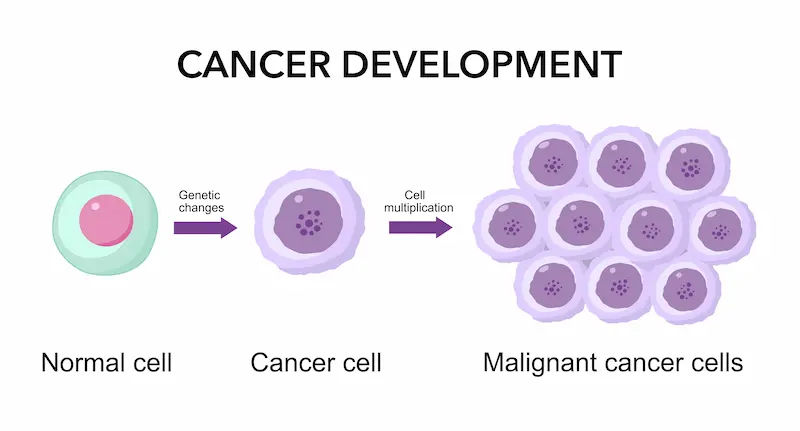Understanding Regular Health Checkups
Learn the importance of regular health checkups for early detection, disease prevention, and overall well-being. Understand what to expect and how routine screenings support a healthier, longer life.


Introduction
Staying healthy is not just about treating illnesses when they arise—it’s about preventing them before they become serious. One of the best ways to do this is through regular health checkups. Many people avoid checkups because they feel fine, but early detection of potential health issues can make a huge difference in treatment and recovery.
In this article, we’ll explore why regular health checkups are important, what they typically include, and how you can make them a part of your routine.
Why Are Regular Health Checkups Important?
Here are some of the reasons why health checkups are important:
- Early Detection of Diseases: Many serious conditions like diabetes, high blood pressure, heart disease, and even cancer show no symptoms in their early stages. Regular checkups help detect these issues early when they are easier to treat.
- Preventive Care: Doctors can provide vaccinations, screenings, and lifestyle advice to prevent diseases before they develop.
- Monitoring Existing Conditions: If you have a chronic condition (like diabetes or hypertension), regular checkups help track your progress and adjust treatments if needed.
- Saves Money in the Long Run: Treating advanced diseases is often more expensive than preventing or catching them early.
- Peace of Mind: Knowing that you’re in good health reduces stress and anxiety about potential health problems.
What Does a Regular Health Checkup Include?
A basic health checkup usually involves:
1. Medical History Review
Your doctor will ask about your personal and family medical history, lifestyle habits (diet, exercise, smoking, alcohol), and any symptoms you may have.
2. Physical Examination
- Blood Pressure Check: High blood pressure (hypertension) can lead to heart disease and stroke.
- Heart and Lung Check: Listening to your heartbeat and breathing to detect abnormalities.
- Weight and BMI (Body Mass Index): Helps assess if you are underweight, overweight, or obese.
Consult Top Specialists
3. Basic Lab Tests
- Blood Tests: Checks cholesterol, blood sugar (for diabetes), kidney and liver function, and more.
- Urine Test: Detects kidney problems, infections, or diabetes.
- Complete Blood Count (CBC): Checks for anaemia, infections, or other blood disorders.
4. Screenings Based on Age & Gender
- For Women: Pap smears (for cervical cancer), mammograms (for breast cancer), bone density tests (for osteoporosis).
- For Men: Prostate exams (for prostate cancer), testosterone levels.
- For Adults Over 40: Heart health screenings, diabetes tests, colon cancer screenings.
How Often Should You Get a Checkup?
- Adults (18-39 years): Every 2-3 years if healthy; annually if risk factors exist (like family history of disease).
- Adults (40+ years): At least once a year, as age increases the risk of chronic diseases.
- Children & Teens: Yearly checkups for growth monitoring and vaccinations.
Tips for Making the Most of Your Health Checkup
Here are some tips to make the most of your health checkup:
- Prepare Questions: Write down any concerns or symptoms you’ve noticed.
- Bring Medical Records: If you’ve had previous tests or treatments, share them with your doctor.
- Be Honest About Lifestyle: Share details about diet, exercise, smoking, or alcohol use—it helps in accurate assessment.
- Follow Up on Recommendations: If your doctor suggests lifestyle changes or further tests, take action promptly.
How to Book a Health Checkup?
If you’re due for a checkup, Apollo 24|7 makes it easy to schedule one from the comfort of your home. You can:
- Book a Full Body Checkup: Tailored packages for different age groups.
- Consult a Doctor Online: Discuss any concerns before or after your tests.
- Get Home Sample Collection: No need to visit a lab; tests can be done at home.
Conclusion
Your health is your greatest wealth, and regular checkups are an investment in a longer, healthier life. Even if you feel fine, a simple visit to the doctor can help catch hidden problems early and keep you on the right track.
- Remember: Prevention is always better than cure. Start today—schedule your health checkup and take the first step toward a healthier future!
Consult Top Specialists
Consult Top Specialists

Dr. Vivek D
General Physician
4 Years • MBBS
Bengaluru
PRESTIGE SHANTHINIKETAN - SOCIETY CLINIC, Bengaluru

Dr Syed Mateen Pasha
General Physician
2 Years • MBBS
Bengaluru
PRESTIGE SHANTHINIKETAN - SOCIETY CLINIC, Bengaluru

Dr. Syed Ismail Ali
General Practitioner
7 Years • MBBS
Hyderabad
Apollo 24|7 Clinic, Hyderabad

Dr. Harshendra Jaiswal
General Physician/ Internal Medicine Specialist
12 Years • MBBS , MD (General medicine)
Kolkata
108 DHANA DHANVANTARI Clinic, Kolkata
(25+ Patients)
Dr. Thandra Ramoji Babu
General Physician/ Internal Medicine Specialist
5 Years • MBBS, DNB(General Medicine)
Warangal
Sai Ram multi-specialty hospital, Warangal
Consult Top Specialists

Dr. Vivek D
General Physician
4 Years • MBBS
Bengaluru
PRESTIGE SHANTHINIKETAN - SOCIETY CLINIC, Bengaluru

Dr Syed Mateen Pasha
General Physician
2 Years • MBBS
Bengaluru
PRESTIGE SHANTHINIKETAN - SOCIETY CLINIC, Bengaluru

Dr. Syed Ismail Ali
General Practitioner
7 Years • MBBS
Hyderabad
Apollo 24|7 Clinic, Hyderabad

Dr. Harshendra Jaiswal
General Physician/ Internal Medicine Specialist
12 Years • MBBS , MD (General medicine)
Kolkata
108 DHANA DHANVANTARI Clinic, Kolkata
(25+ Patients)
Dr. Thandra Ramoji Babu
General Physician/ Internal Medicine Specialist
5 Years • MBBS, DNB(General Medicine)
Warangal
Sai Ram multi-specialty hospital, Warangal




